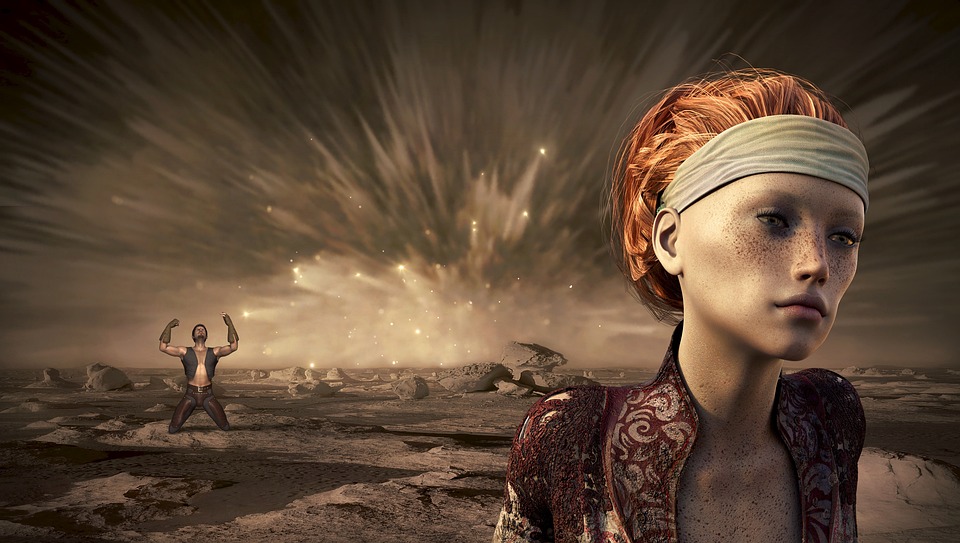Building the Metaverse with blockchain: A New Frontier for Digital Innovation
Introduction
The concept of the Metaverse, a Virtual reality space where users can interact with a computer-generated environment and other people, has fascinated science fiction enthusiasts for decades. However, recent advancements in technology, particularly the rise of blockchain, have brought us closer to realizing this futuristic vision. In this article, we will explore how blockchain technology can be the key to building the Metaverse and revolutionizing digital innovation.
Understanding the Metaverse
The Metaverse is an interconnected Virtual reality space that allows users to explore, interact, and create within a computer-generated environment. It goes beyond the limitations of traditional screens and brings users into a fully immersive digital world. It has the potential to transform various industries, including gaming, entertainment, education, and even commerce.
The Role of blockchain
blockchain, the decentralized ledger technology that underpins cryptocurrencies like Bitcoin, has several key features that make it an ideal candidate for building the Metaverse. Firstly, blockchain provides a secure and transparent framework for recording and validating transactions, ensuring trust and preventing fraud within the Metaverse. Secondly, its decentralized nature eliminates the need for a central authority, allowing for a truly peer-to-peer experience. Finally, blockchain enables the creation of digital assets that can be owned, traded, and monetized within the Metaverse, providing a sustainable economic model.
Building Blocks of the Metaverse
To understand how blockchain can enable the Metaverse, let’s explore some essential building blocks:
Virtual reality (VR) Technology
Virtual reality technology is crucial for creating an immersive experience within the Metaverse. Headsets, motion controllers, and haptic feedback devices allow users to interact with the virtual environment, making it feel more realistic and engaging.
Smart Contracts
Smart contracts are self-executing agreements coded on the blockchain. They can automate transactions, enforce rules, and ensure fairness within the Metaverse. For example, smart contracts can facilitate the ownership and transfer of virtual assets, such as in-game items or virtual land, without the need for intermediaries.
Non-Fungible Tokens (NFTs)
NFTs are unique digital assets that can represent ownership of a particular item or piece of content. They are indivisible and cannot be exchanged on a like-for-like basis, making them ideal for representing rare or exclusive virtual assets within the Metaverse. NFTs can enable the creation and monetization of virtual art, music, collectibles, and more.
Decentralized Identity
Decentralized identity solutions allow users to have control over their personal information while maintaining privacy and security. With blockchain, users can create and manage their digital identities, which can be seamlessly used across different Metaverse platforms, ensuring interoperability and reducing the need for multiple logins.
Interoperability
Interoperability is crucial for a thriving Metaverse. blockchain can enable seamless interoperability between different virtual worlds and platforms, allowing users to carry their assets, identities, and achievements across different Metaverse environments. This interoperability fosters collaboration, creativity, and a richer user experience.
FAQs
Q: How can blockchain ensure the security of the Metaverse?
A: blockchain‘s decentralized and immutable nature ensures the security of the Metaverse by preventing unauthorized modifications or fraudulent activities. Transactions recorded on the blockchain are transparent, and consensus mechanisms ensure the validity of transactions and prevent double-spending.
Q: Can blockchain enable the monetization of virtual assets?
A: Yes, blockchain enables the creation of digital assets that can be owned, traded, and monetized within the Metaverse. NFTs, powered by blockchain, provide a way to represent and prove ownership of virtual assets, allowing creators and users to monetize their creations and participate in the Metaverse economy.
Q: How can the Metaverse benefit industries beyond gaming and entertainment?
A: The Metaverse has the potential to revolutionize various industries. For example, in education, the Metaverse can provide immersive and interactive learning environments. In commerce, it can enable virtual shopping experiences. The Metaverse can also enhance teleconferencing, social interactions, and even healthcare by enabling virtual medical consultations and training simulations.
Q: Are there any challenges in building the Metaverse with blockchain?
A: Yes, there are challenges that need to be addressed. Scalability, energy consumption, and user adoption are some of the key challenges. However, ongoing research and development in blockchain technology are continuously addressing these concerns, bringing us closer to the realization of a fully functional Metaverse.
Conclusion
blockchain technology holds immense potential for building the Metaverse, a Virtual reality space where users can explore, interact, and create within a digital environment. With features like secure transactions, decentralized identity, and the ability to create and monetize virtual assets, blockchain can revolutionize digital innovation across various industries. As technology continues to evolve, we are inching closer to a future where the Metaverse becomes an integral part of our digital lives.

